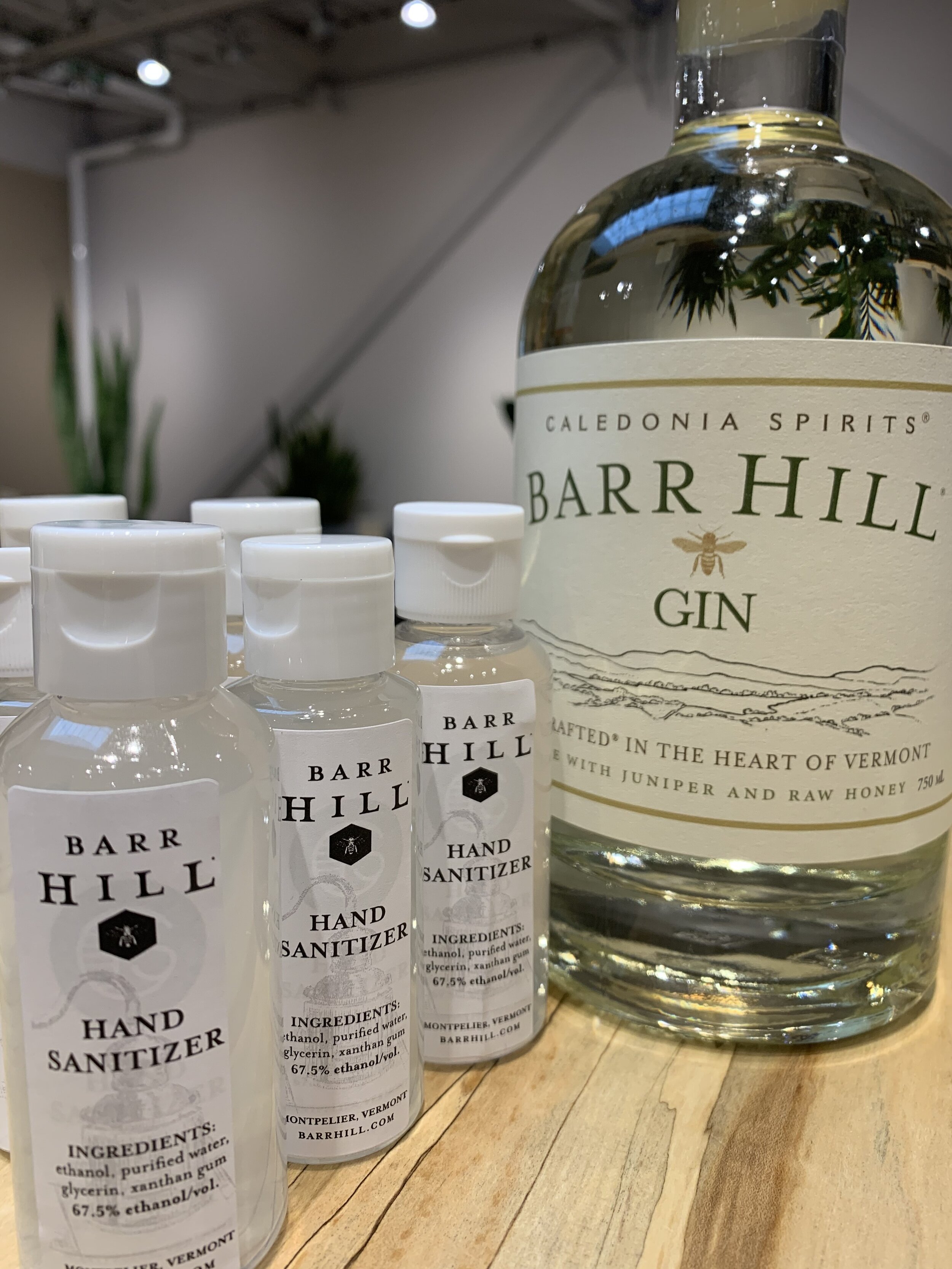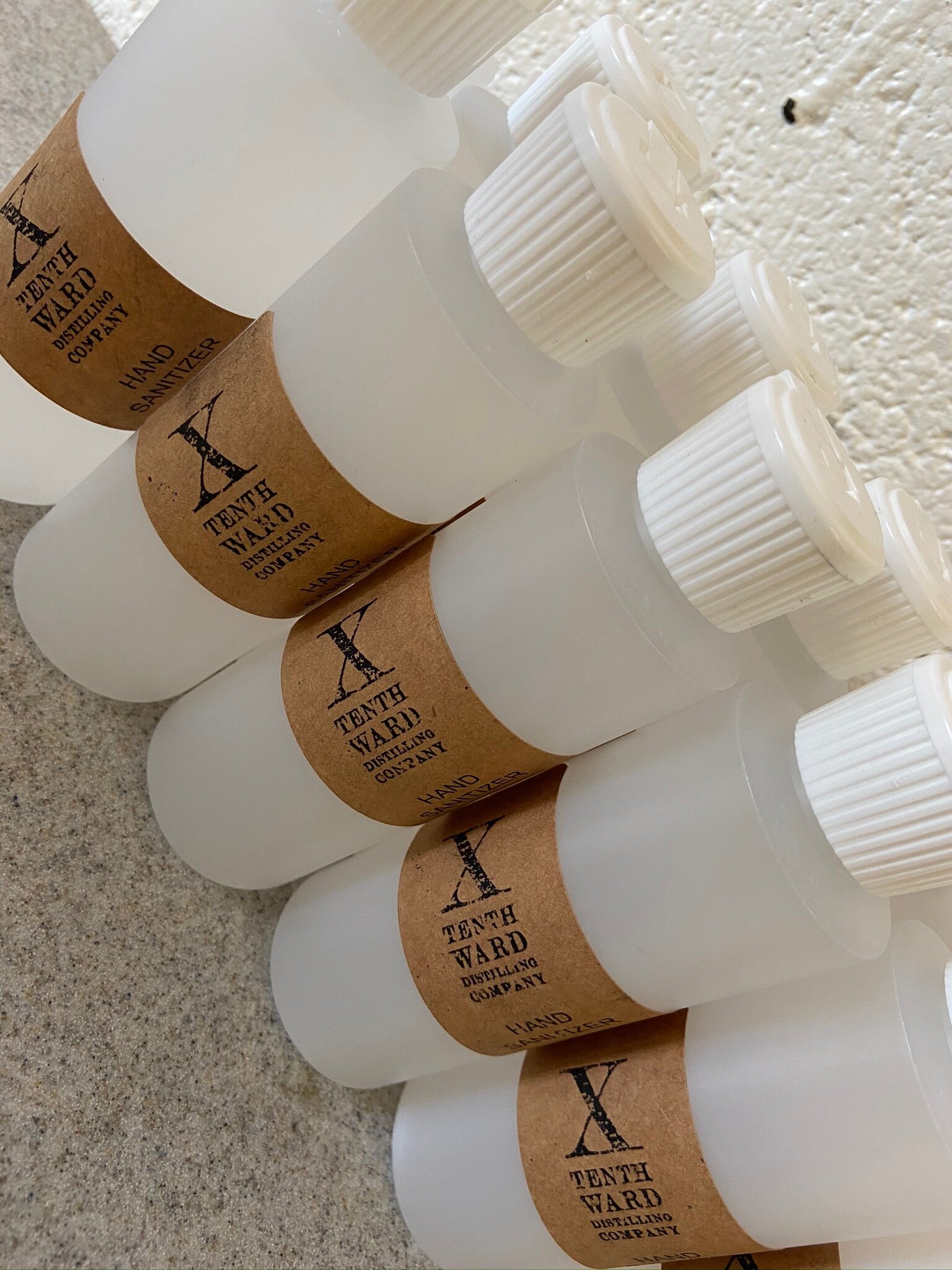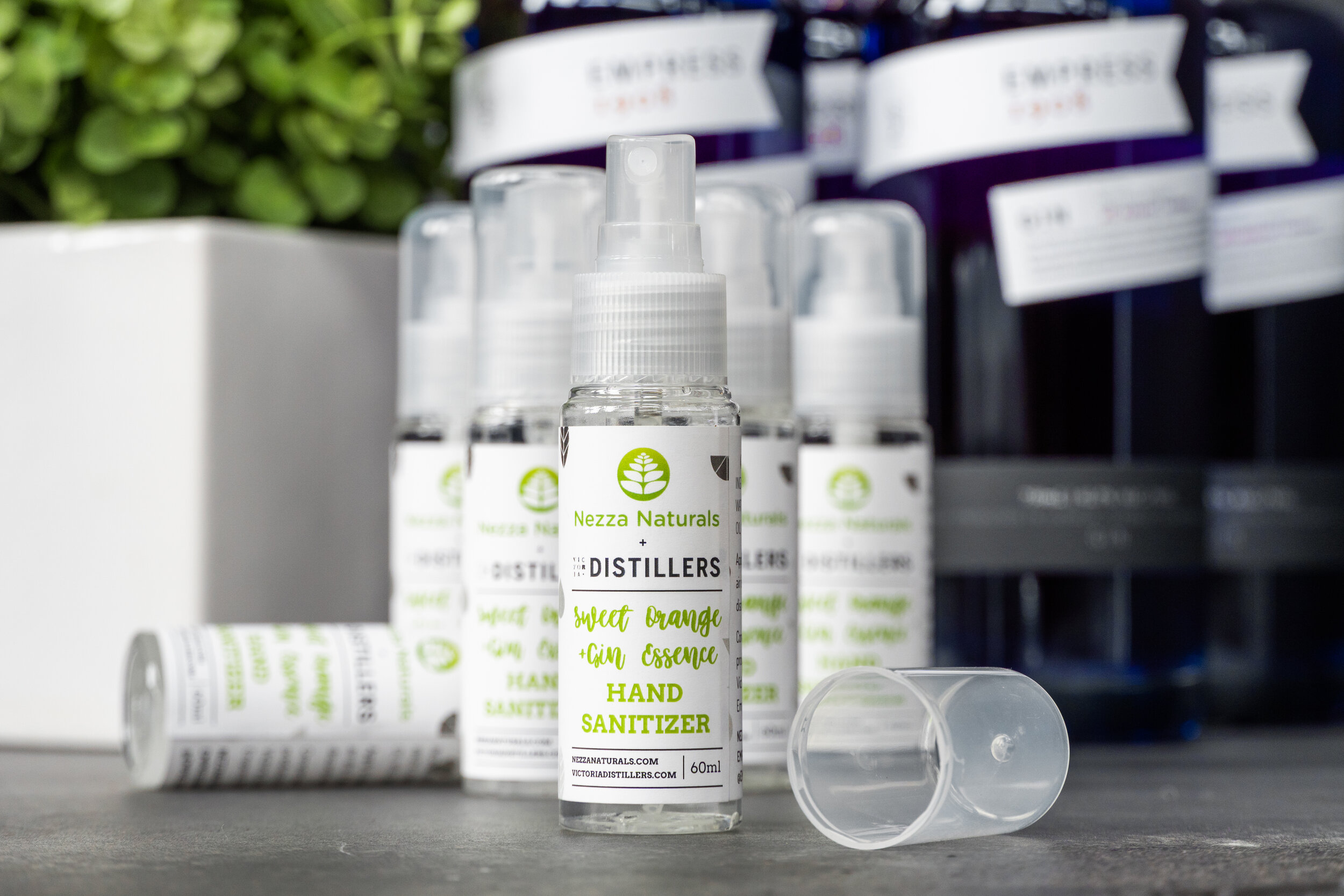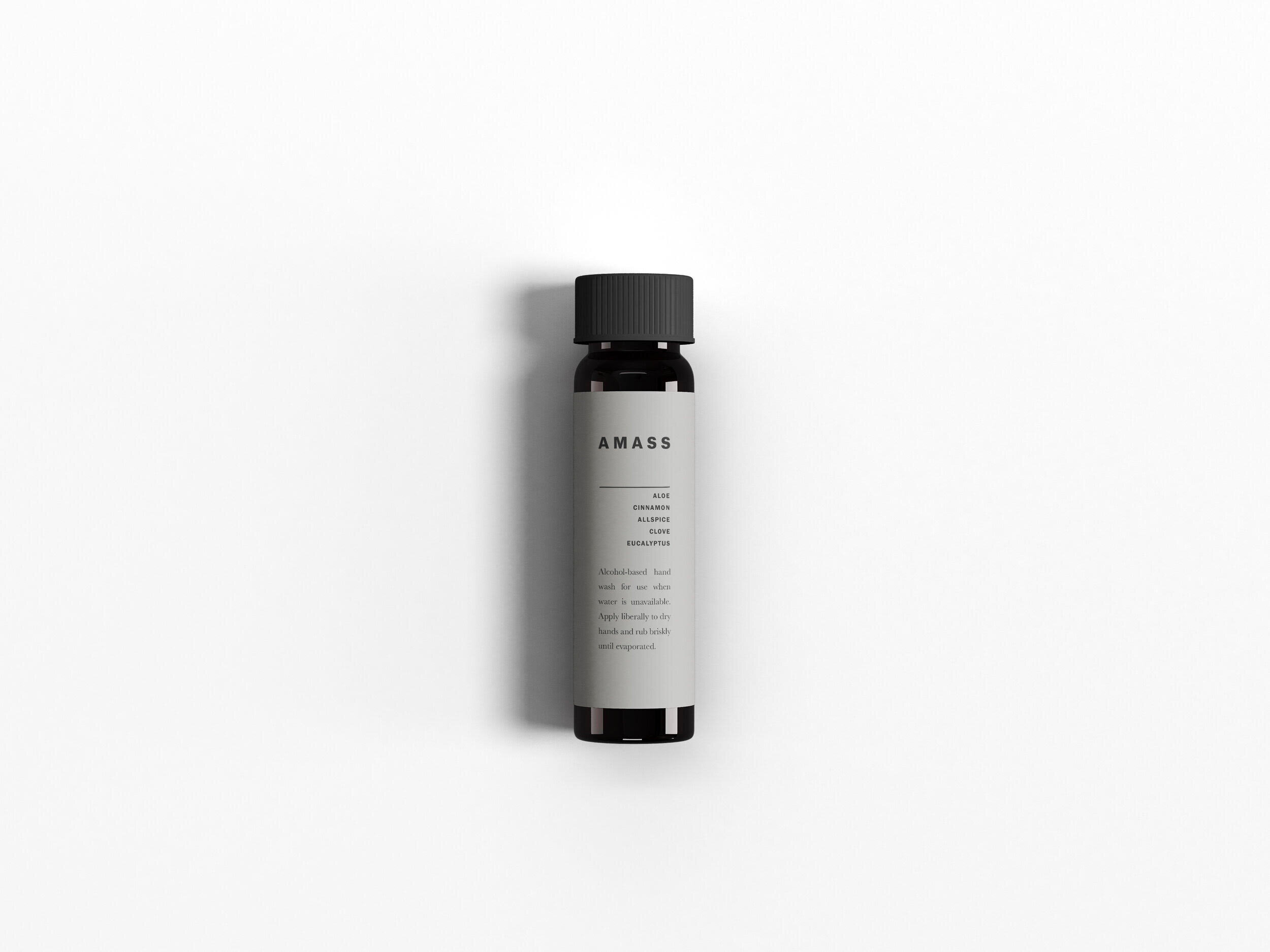Distillers Do Their Part To Combat COVID-19
courtesy Caledonia Spirits
Distillers are producing hand sanitizers, but keeping them away from the hoarders
COVID-19 continues to impact every aspect of society. Bars, restaurants, gyms, salons and other businesses are being shuttered indefinitely, and many states are urging residents to stay home whenever possible. However, distilleries around the country, both corporate and craft, are turning their production focus to making hand sanitizers, instead of the whiskies, rums and vodkas they’re known for.
As news of the pandemic spread, panic shoppers created a scarcity of sanitizing products, with most retailers sold out of those products indefinitely. Fortunately, spirit makers have the key ingredient needed for hand sanitizer: high-proof alcohol. According to The Centers for Disease Control and Prevention (CDC), an alcohol-based hand sanitizer with at least 60% alcohol is needed for an effective sanitizer—anything less than 120 proof likely won’t be strong enough.
courtesy Tenth Ward
The craft distilling community responds
“As it became increasingly clear that the pandemic was going to have lasting repercussions across all industries, we also saw people beginning to hoard things like cleaning alcohol, hand sanitizer, etc.,” says Mark Vierthaler, Head Distiller at Maryland’s Tenth Ward Distilling. “We began to look around, and we realized that we've been using some byproducts of our potable alcohol for cleaning here in the stillhouse, so why not see if there couldn't be ways we could help those locally by offering some of our own solutions (pun intended).”
Like Tenth Ward, a host of other craft distillers had a similar idea, responding to a situation that increasingly mirrors agricultural efforts from breweries and distilleries in World War II. However, to lessen the chances of another instant shortage, many distillers are producing to directly benefit those who need the products most, such as Michigan’s Ugly Dog, who are creating their product solely to benefit first responders. Brooklyn’s New York Distilling Co. is using their undiluted Perry’s Tot Navy Strength Gin to make hand sanitizer (bonus: the botanicals smell great!) to benefit the local hospitality industry. Minnesota’s Far North Spirits is making some specifically to donate to local grocery stores and hospitals.
Caledonia Spirits, the maker of Barr Hill Gin (which won Double Gold in the 2019 NY International Spirits Competition), Barr Hill Vodka and Tom Cat Gin, decided to help fellow Vermonters in need by making and donating sanitizer for local nonprofit organizations—starting with the Vermont Foodbank. “We made the shift quickly because we saw the need,” says Harrison Kahn, Caledonia’s Vice President of Marketing. “We had the key ingredients and followed WHO [World Health Organization] guidelines of combining alcohol, glycerol, hydrogen peroxide and a small bottle. There was no question as to whether or not we should do it—it was just how to do it.”
Caledonia is now in talks with the state of Vermont to make 1,500 units for the state’s first responders. It is also still paying its staff in full (including benefits) and still making its flagship spirits.
Victoria Distillers, home of Empress 1908 Gin, partnered with Nezza Naturals, to create a hand sanitizer with essential oils and the alcohol that is leftover from distillation. The hand sanitizer is free or charge, with priority being given to those working in essential services. Victoria Distillers is prepared and prioritizing the production and donation of these hand sanitizers for the next few months.
AMASS Master Distiller Morgan McLachlan was feeling particularly sensitive to the virus as she is pregnant with her first child. With her expertise in alcohol, botanicals and formulation, she decided to make her own hand sanitizer. After posting it on Instagram, the Los Angeles-based distillery received several requests. Now, a travel size and full size botanic hand sanitizer are available for pre-order, and 10% of sanitizer sales will go to the USBG relief fund.
Corporate distillers take action too
Large production distilleries, including those under Pernod Ricard, Bacardí and Destilería Serrallés (maker of Don Q Rum for Diageo) have shifted production to create sanitizer as well.
Pernod Ricard recently announced that it will produce hand sanitizer at its manufacturing sites, which includes their facility in Fort Smith, Arkansas, Smooth Ambler Spirits, Rabbit Hole Distillery and Firestone and Robertson in Texas. “We have been struggling over the past few weeks to try and find a way to help our neighbors,” said Smooth Ambler’s Head Distiller and CEO John Little. “I am proud of our partnership with Pernod, led by a wonderful team, and prouder still to join our extended distillery family in stepping up, pivoting briefly from our whiskey mission to a greater community cause, and help provide this necessary and potentially life-saving item.”
courtesy Victoria Distillers
The Bacardí Corporation distillery in Cataño, Puerto Rico, where more than 80% of the company’s rums are produced, has partnered with Puerto Rico based manufacturer Olein Refinery to provide raw materials that will enable the production of more than 1.7M units of 10-ounce hand sanitizer. Over half a million of the 10-ounce hand sanitizer units produced will be donated to local communities. The company plans to expand distribution this week to non-profit organizations including Fondos Unidos (United Way). Bacardí employees and contractors also received the free product.
Destilería Serrallés responded to Puerto Rico’s shortage of ethyl alcohol. “Given the critical health scenario that Puerto Rico is experiencing, we have refocused our manufacturing operations to produce ethyl alcohol and donate it to hospitals and public health providers,” says Philippe Brechot, President and CEO of Destilería Serrallés which produces Don Q Rum. “The company will be coordinating logistics with hospitals, eligible organizations and health providers throughout the island.”
But for everyone to do their part, the liquor laws have to change
To help these companies in return, The Distilled Spirits Council of the United States (DISCUS) began working with Congress and the White House earlier this week to ease regulations that could require distillers producing hand sanitizer to pay federal excise taxes on the alcohol used.
The Tax and Trade Bureau (TTB) eased regulations to permit distillers to make hand sanitizer, but were initially unable waive the federal excise tax for distillers using undenatured ethanol. Under the new TTB guidance, “Hand sanitizer products are not subject to Federal excise tax if made with denatured ethanol. However, if made with undenatured ethanol, Federal excise tax applies.”
TTB has eased regulations so that a distillery will not need a special permit to produce hand sanitizer as long as it holds a beverage producer's permit. Additionally, TTB is allowing the production without formula approval as long as distilleries follow the World Health Organization formula for hand sanitizer,, which includes grain neutral spirits, glycerin and hydrogen peroxide.
DISCUS has asked Congress to make an emergency fix in upcoming COVID-19 relief legislation so that distillers can use the ethanol they have on hand—denatured or undenatured—to quickly make the hand sanitizer without having to expend additional resources and time.
“We want to thank our regulator partners at the Tax and Trade Bureau for working with us to cut through the red tape so we can quickly help fill this need in our country,” said Swonger. “The distilled spirits industry is already facing difficult times with tariffs and the shutdown of bars and restaurants. Distillers are members of the community and want to help, but forcing them to pay taxes on the hand sanitizer is just plain wrong.”
Since DISCUS released its statement, the TTB and Food and Drug Administration (FDA) have offered increased guidance on the production and usage of ethanol for hand sanitizers, allowing distilleries to work with nearby pharmacies to supply neutral ethanol for their usage in creation of sanitizers and compounding of their own.
courtesy AMASS
“We've been cautious about producing sanitizers for industrial uses as well as first responders, etc. as we're not a licensed pharmaceutical producer,” says Tenth Ward’s Vierthaler. “However we're excited that we've been given the guidance that we can now get these products into the hands [of those] who have the knowledge—and the certification—to produce on a medical level.”
But it’s still a supply issue
For some craft distilleries, the new challenge that is surfacing is how to source the ingredients needed to make the sanitizer. Caledonia plans to continue making theirs for additional local organizations while its supplies last. To that end, the distillery’s team is looking for more raw materials (glycerol and small bottles) so that it can keep the project going. If any businesses out there have large volumes of either, Caledonia is asking that they reach out at info@caledoniaspirits.com.
All of these spirit makers agree that this was the right thing to do but they also all want to get back to what they do best.
“Booze is what we're good at. It's our bread and butter,” says Vierthaler. “As things begin to calm down and supplies begin to return, we will stop offering our house hand sanitizer to the public. However, if something similar happens again (God forbid), we'll 100% jump right back in to help bridge gaps in any ways we can.”




